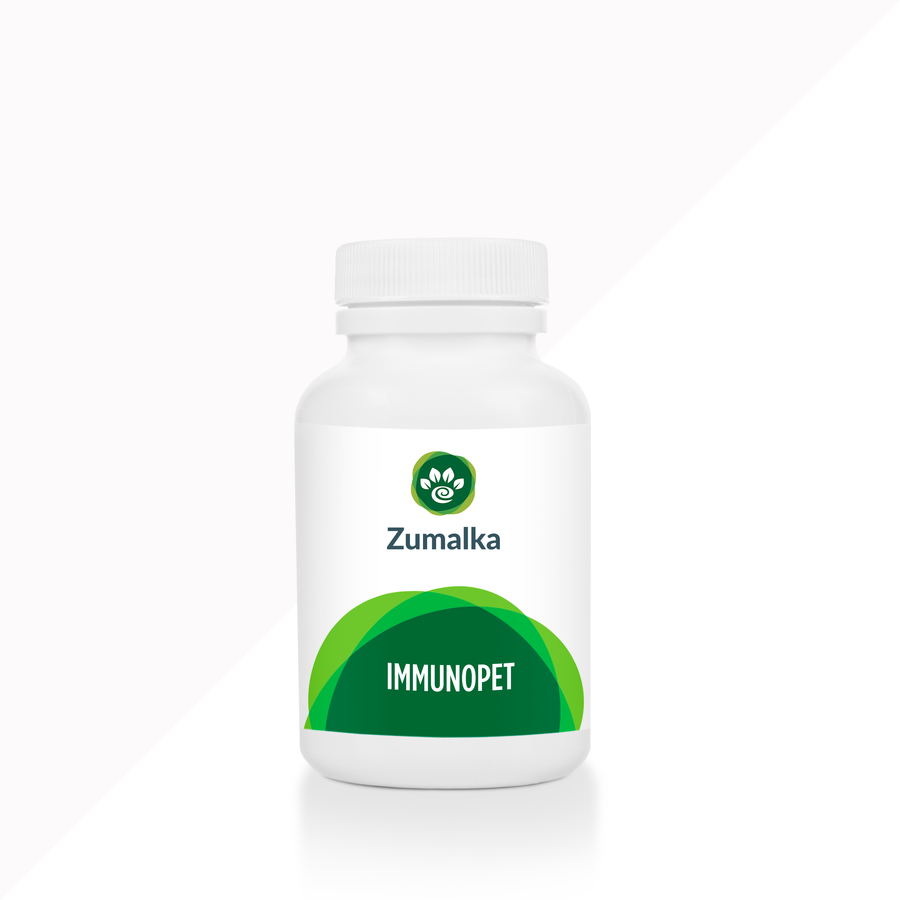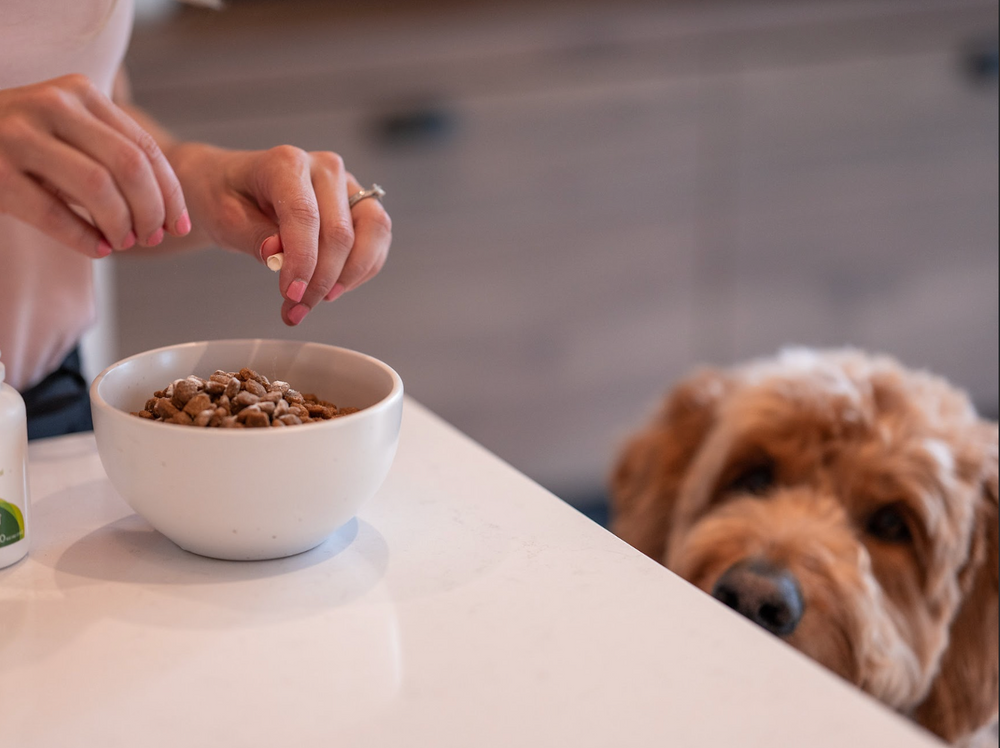Vet-Verified: 8 Senior Beagle Health Issues & Home Care Tips
List of Contents
Beagles are beloved for their playful spirit, loyalty, and curious nature. As they enter their senior years, typically around age 8, understanding their changing health needs is key to ensuring a happy, healthy life.
Most Beagles are considered seniors around age 9, though this can range from 8 to 12 depending on health and lifestyle. Knowing when your Beagle becomes a senior helps you adjust care to support their well-being.
This guide covers the 8 most common age-related and chronic health issues in senior Beagles. You'll also find practical, vet-verified home care strategies to help your dog stay healthy and thrive.
8 Common Senior Beagle Health Issues & At-Home Care Tips

#1. Hypothyroidism (The hormone hider)
Hypothyroidism is common in middle-aged to senior Beagles and can be easy to overlook. Symptoms include weight gain despite a normal diet, low energy, hair loss, a dry or coarse coat, and recurring ear infections.
Once diagnosed, hypothyroidism in Beagles is typically managed with daily thyroid medication prescribed by a veterinarian. Consistent dosing and regular checkups are essential to maintain your dog’s energy, weight, and coat health.
-
Weight management is crucial for Beagles with hypothyroidism, as the condition naturally slows metabolism. Monitor food portions closely and choose a vet-approved diet to help prevent excess weight gain.
#2. Obesity and weight management (The constant challenge)
Obesity is common in Beagles, largely due to their hearty appetite and tendency to overeat. Signs include visible fat deposits, reduced stamina, and noticeable weight gain that can impact overall health.
- Portion control is essential for managing obesity in Beagles. Avoid free-feeding and instead provide measured meals two to three times a day to maintain a healthy weight.
- Choose low-calorie treats like carrots or green beans to help manage your Beagle’s weight. Treats should be limited to no more than 10% of their daily calorie intake.
- If your Beagle eats too quickly, a slow-feeder bowl can reduce the risk of choking and digestive issues. It also promotes healthier eating habits and better portion control.
#3. Joint issues (Arthritis, hip dysplasia, and IVDD)
Senior Beagles often develop joint problems, such as arthritis or hip dysplasia, and some may exhibit signs of intervertebral disc disease (IVDD). Common symptoms include limping, stiffness, difficulty with stairs or jumping, and visible discomfort in the hips or back.
- Beagles in their golden years benefit from daily low-impact exercise to support joint health and mobility. Keep walks gentle and avoid activities like jumping or rough play that can strain the back and worsen conditions like IVDD.
- An orthopedic dog bed provides essential support for aging joints, helping relieve stiffness, aches, and pain. This added comfort can improve your senior Beagle’s sleep quality and overall well-being.
- Incorporating omega-3 fatty acids into your Beagle’s diet can help ease inflammation and joint pain. Supplements like Glucosamine and Chondroitin may also enhance mobility and support long-term joint health.
#4. Chronic ear infections and skin allergies
Chronic ear infections are common in Beagles and often linked to underlying allergies. This is primarily due to their long, floppy ears, which can harbor bacteria. Watch for signs like frequent ear scratching, head shaking, a yeasty odor, or waxy buildup in the ears.
Skin allergies in Beagles often appear as persistent itching, redness, flakiness, or hair loss. These symptoms can be seasonal or chronic and may worsen without proper management.
- Regular ear cleaning is essential for Beagles, especially due to their floppy ears, which trap moisture and debris. Use a vet-recommended ear cleanser once or twice a month, and always dry ears thoroughly after baths or exposure to water.
- Check your Beagle’s skin regularly for signs of irritation, such as bumps, redness, or scabs. Medicated shampoos, wipes, sprays, or mousses, used under veterinary guidance, can help soothe itching and manage allergy-related flare-ups.

#5. Dental disease (The hidden threat)
Dental disease is common in Beagles and often goes unnoticed until it causes pain or eating difficulties. Signs include sore gums, loose teeth, and dropping food, issues that can impact overall health and shorten lifespan if left untreated.
- Daily brushing with dog-safe toothpaste is the best way to prevent dental disease in Beagles. It helps remove plaque, protect gums, and support long-term oral health.
- For senior Beagles with sore or missing teeth, softening their food makes eating easier and more comfortable. Add warm water or low-sodium chicken broth to a senior-formulated meal to improve texture and palatability. Note: Dogs that regularly have soft foods do not require this.
#6. Diabetes mellitus (Sugar regulation issues)
Diabetes mellitus is a common condition in senior Beagles, affecting the body's ability to regulate blood sugar. Key symptoms include increased thirst, frequent urination, and unexplained weight loss despite a healthy or increased appetite.
- Senior Beagles with diabetes may need to urinate more frequently, so easy access to an outdoor bathroom area is essential. Take your dog outside more often to prevent accidents and support comfort.
- If your senior Beagle is drinking and urinating more than usual, it could signal diabetes or kidney issues or thyroid problems. Promptly contact your veterinarian to ensure early diagnosis and proper care.
- To help manage diabetes in senior Beagles, focus on maintaining a balanced diet and healthy body weight. Extra pounds can make it more difficult for their body to regulate blood sugar effectively.
#7. Epilepsy and seizures
Epileptic seizures in senior Beagles often last under a minute but can vary in intensity. Episodes may involve muscle stiffness, twitching, or more serious signs like collapsing, unconsciousness, or loss of bladder control.
- If your Beagle has a seizure, stay calm and focus on keeping them safe. Gently clear the area of furniture or objects that could cause injury during the episode.
- Avoid placing your hands near your Beagle’s mouth during a seizure, as they may bite unintentionally. Use a timer or clock to track the duration of the episode. This information is vital for your veterinarian. Recording the seizure and showing it to the vet is also recommended.
- If you think your Beagle has had a seizure, contact your veterinarian immediately. Prompt medical guidance is essential to determine the cause and next steps for treatment.
#8. Eye issues (Cherry eye and glaucoma)
Senior Beagles are susceptible to eye conditions like cherry eye and glaucoma. Cherry eye presents as a red bulge in the inner eyelid, while glaucoma may cause swelling, cloudiness, redness, or frequent squinting.
- Keep an eye on your senior Beagle for signs of eye issues like cherry eye, cataracts, or vision changes. Look for symptoms such as a whitish tint, eye bulging, or increased bumping into objects.
- Artificial tears can provide temporary relief from cherry eye by keeping the eye lubricated and reducing irritation. However, surgery is often needed to correct the condition permanently.
- Immediate veterinary care is needed if your Beagle shows signs like eye cloudiness, redness, discharge, squinting, or frequent pawing. These symptoms may signal glaucoma, which can lead to vision loss if not treated promptly.
Essential Care Tips for Senior Beagles

As Beagles age, their care needs change, requiring more attention to comfort, nutrition, and daily routines. These essential tips will help you support your senior Beagle’s health, mobility, and overall well-being at home:
Regular veterinary checkups
Around age 9, Beagles benefit from regular senior wellness exams to detect health issues early. These checkups often include a full physical exam, blood tests, urinalysis, and heart evaluations to track changes and support preventive care.
Consistent coat and skin checks
Due to their tendency toward allergies, senior Beagles should be regularly checked for skin issues like redness, bumps, or flakiness. Bathe every 2 to 4 weeks with a gentle, high-quality dog shampoo, and brush weekly to reduce shedding and keep the coat healthy.
Nail care is a must
Senior Beagles often need more frequent nail trims, as reduced activity means less natural wear. Clipping every 2 to 3 weeks helps prevent cracks, splits, and discomfort caused by brittle nails.
Consult a Certified Pet Homeopath for Additional Support
As your Beagle enters their senior years, their health needs often become more complex. And sometimes, conventional care may not address every concern. A certified pet homeopath can offer personalized, holistic support tailored to your dog’s unique symptoms and constitution.
This added layer of care can be especially helpful in managing chronic conditions or supplementing your current wellness plan.
Zumalka’s CERTIFIED PET HOMEOPATH CONSULTATION connects you directly with a certified expert from the comfort of your home. Through this service, you’ll receive a customized treatment plan designed to gently support your pet’s health using natural remedies. It’s a thoughtful option for pet parents seeking safe, well-rounded support for their aging dog.
Key Takeaways
Senior Beagles remain loyal, affectionate companions who deserve thoughtful, proactive care in their golden years. With proper nutrition, regular monitoring, and preventive strategies, you can help your aging Beagle stay healthy, comfortable, and happy for as long as possible.
Early detection is essential for managing age-related conditions in senior Beagles. If you notice changes in appetite, behavior, or energy levels, consult your veterinarian promptly. For additional support, a certified pet homeopath can offer personalized, natural care to complement your dog’s treatment plan.
FAQs
How long do Beagles live?
The average Beagle life expectancy is 10–15 years.
What is the number 1 killer of Beagles?
Cancer is the most common cause of death for Beagles.
Do Beagles have lots of health issues?
While Beagles are generally healthy, they are predisposed to several genetic and lifestyle-related conditions, but proper care can significantly reduce these risks.
Do Beagles shed?
Yes, Beagles shed moderately year-round and can shed more heavily in the spring and fall.
Are Beagles lazy?
Beagles are naturally active and curious, but their energy levels often decline with age. It's important to know that even senior Beagles typically need regular stimulation and shouldn't be expected to be low-maintenance lap dogs.
Are Beagles smart dogs?
While Beagles are highly intelligent, their strong scent drive can make them easily distracted during training. Consistency and reward-based methods are essential for keeping their focus.
How much do Beagles cost?
A Beagle dog’s price can range from $500 to over $1,000, depending on many factors.
Are Beagles good dogs?
Beagles are friendly, family-oriented dogs that usually get along well with kids and other pets. They’re social and energetic, so they do best with owners who can keep them active and engaged.









Leave a comment